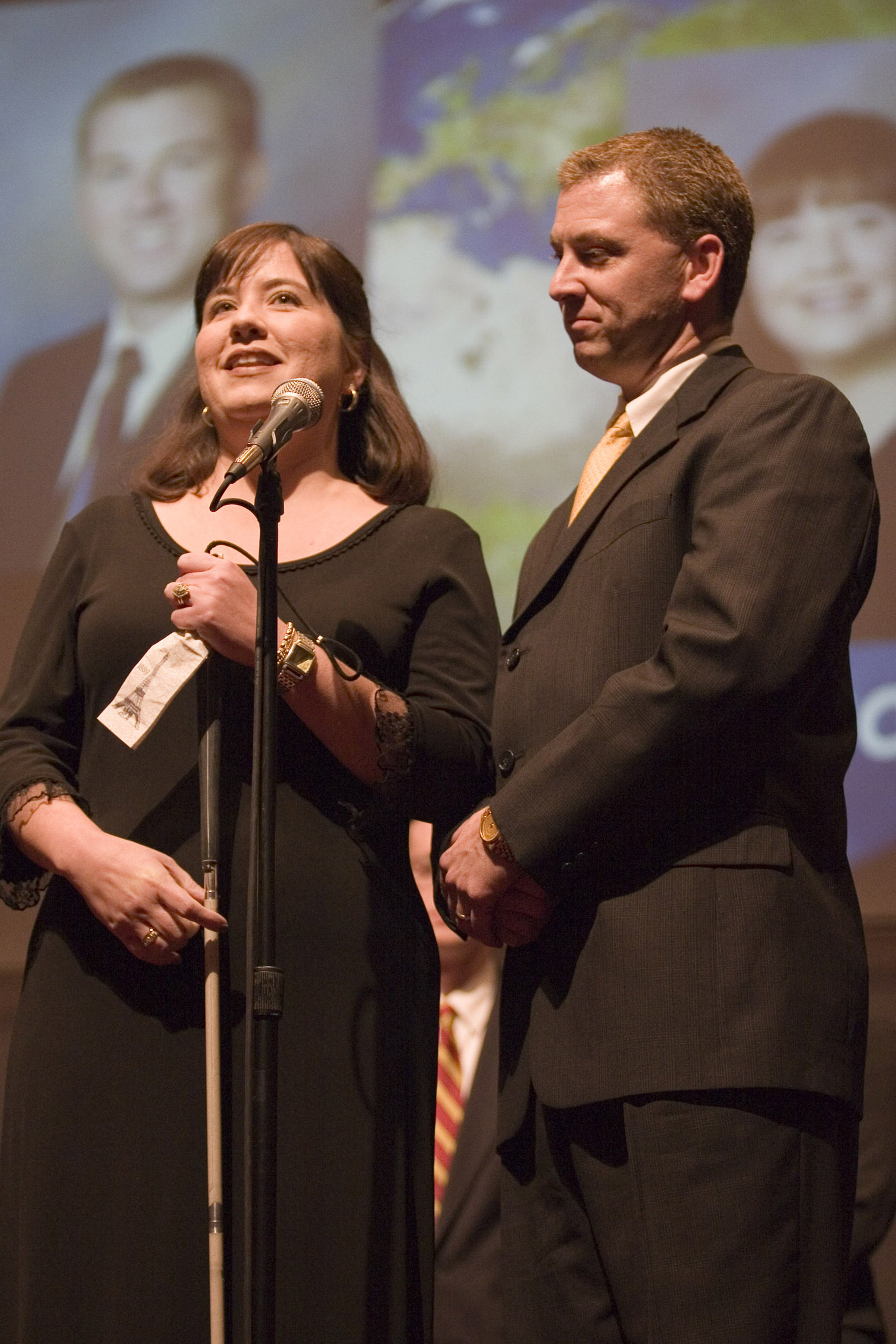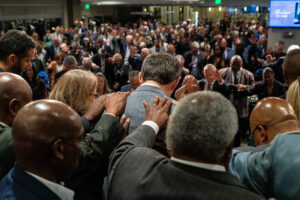
LA MARQUE, Texas (BP)–Kendra Lindsey is legally blind and unable to drive or leave her house alone. Yet her vision for overseas missions is crystal clear.
This spring, Lindsey and her husband, Rod, and their four children will move away from their home in La Marque, Texas, to Western Europe. There, they will help start churches as Southern Baptist missionaries. If being a missionary seems intimidating to most people, consider filling that role without the ability to see.
But 38-year-old Lindsey isn’t looking for sympathy.
“If He wants to move you, God will use us no matter who we are and where we are in life, so long as we are open and faithful in seeking what He wants for us,” Lindsey said.
Lindsey was born with a birth defect that left her blind in her right eye. She also has a condition that has gradually deteriorated the vision in her left eye, leaving her with no peripheral vision. A contact gives her minimal vision in that eye, allowing her to read e-mail with a program that enlarges print.
Though Lindsey is legally blind, her warm personality and good eye contact hide her impairment. She’s the typical healthy-looking and vibrant mother of four. Her husband has led music and education at First Baptist Church of La Marque for the past 10 years.
As their move to the mission field draws closer, Kendra Lindsey looks forward to the challenges ahead.
In Western Europe, mosques are being erected, while churches and unused cathedrals are being torn down or rented. Most people who live there still need to hear and accept the Gospel. Despite the tourism and ornate buildings, it’s a spiritually dark place, Lindsey said.
While growing up, Lindsey struggled with her own dark days of resentment and frustration toward her visual impairment. In recent years, however, she has accepted her limitations as a gift -– and uses them to share her faith.
“God has used the fact that people come and pick me up and take me places as times to have one-on-one personal conversations,” she said. “Sometimes that has been a ministry to people.
“I think [being blind] really made me more determined. It made me more determined to be the best that I could be in whatever God was wanting me to do.”
There are still many unanswered questions Lindsey will have to entrust to God when she moves with her family to the mission field. She will depend heavily on public transportation and hunt for language courses that cater to the visually impaired.
“I may not know or understand all of those logistics of how language study will happen or how my ministry will specifically be,” she said. “But I know that God uses me here … and He will use me wherever He’s called me.”
Lindsey didn’t always feel that way. After starting a family and participating in occasional volunteer mission trips, she said life seemed to be “falling into place.”
“We were working for God, we were finally having children,” she said. “[Becoming a missionary] didn’t make sense to me.”
But during a mission trip to Western Europe, Lindsey’s perspective toward fulltime missions changed. She and Rod were passing out Bibles on Sept. 11, 2001. That morning a couple asked them if they had heard that the United States was “under attack.” In the following days, the Lindseys worked alongside missionaries as they coped with the crisis.
“It really let us have some insight into what some of the dearest missionary families were going through,” she remembered. “[We witnessed] some of the things they sometimes faced, some resistance on the field. At that point, I knew God wanted me to work on the mission field.”
Lindsey admits there were still doubts that the International Mission Board would appoint her as a missionary.
“I kind of still hung on to the ‘Well, I’m visually impaired, they won’t send me,’” she said. “I thought I was going to be a hindrance.”
The couple’s passion for missions, however, overshadowed any doubts IMB candidate consultant Ken Eells might have had about her abilities.
“You could really tell they were called to missions,” said Eells, a consultant for 10 years.
“They never, never, never looked back,” he said. “I think if they would have wavered in their call, I would have hesitated. But I think they would have gone even if we didn’t send them. They were that passionate about their call.”
Eells encourages those with disabilities to consider contacting the IMB before dismissing the idea of serving as missionaries on the mission field. Before the Lindseys, the IMB has sent deaf missionaries and others with physical challenges.
“We can’t sit here and make a blanket statement that we will send [everyone with physical disabilities],” he said. “We deal with each person individually, case by case. The only way we are going to know is if they contact us.”
Lindsey said she hopes her blindness and heart for missions will challenge others with physical disabilities to follow God’s call.
“My attitude is that this is who I am now,” she said. “And He is going to use me because I’m who I am.”
–30–
















